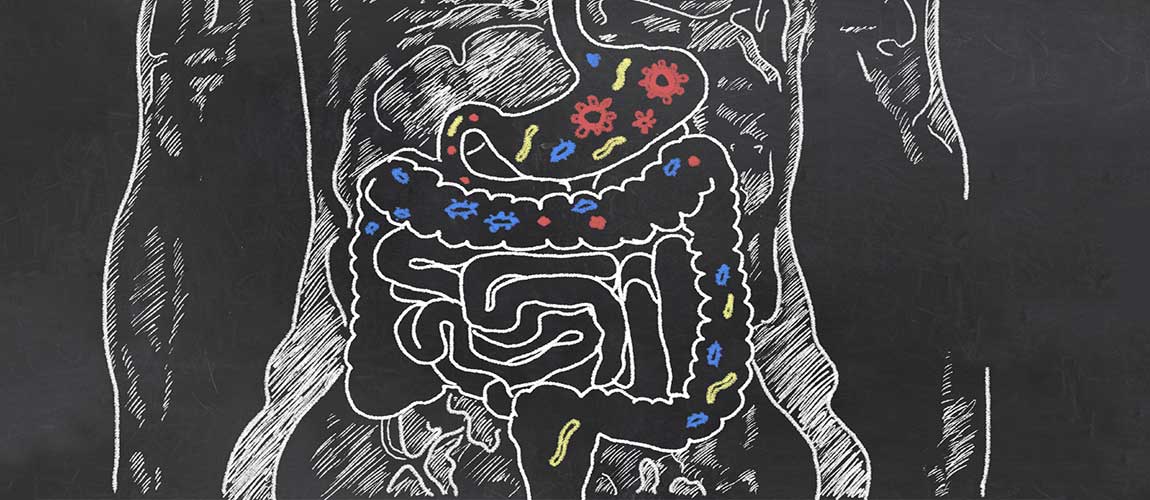Probiotic Supplementation Proven to Protect Bone Health in Women
As adults grow older, their bones become more brittle and, as a result, they can fracture more easily. While this phenomenon can affect both men and women, women are more at risk for bone loss as they age, suffering more commonly from conditions such as osteoporosis and osteopenia. Women over 80 years of age are at the highest risk for developing osteoporosis. Compounding the problem is the fact that osteoporosis is rarely identified until an actual bone fracture occurs.
Due to these alarming facts, a recent study, conducted at the Sahlgrenska University Hospital in Mölndal, Sweden focused on the effect that probiotics had on bone health in women. In the study, comprised of older women, subjects were divided into two equal groups. The test group received probiotic supplements, while the control group were given placebo replacements. When bone health of the women taking probiotics was compared to those who only received a placebo, the women taking the probiotics were shown to have experienced half as much bone loss, suggesting that probiotics protect bone health.
Probiotics Protect Bone Health in Older Women
The study looked at probiotics as a means of preventing fractures in elderly women. Researchers took a pool of 90 test subjects, comprised of women with an average age of 75, and administered either probiotics or placebos in daily dosages. During the year-long experiment, both researchers and test subjects were kept in the dark as to which women were receiving the probiotics.
CT scans were taken of each subject's lower legs at the start of the study, and again after the 12-month term had concluded. When the scans were compared, researchers found that the women on the powdered probiotic supplement developed only half the bone degradation of the women taking the placebo. Additionally, researchers noted that the probiotics didn't cause any negative side effects in the subjects.
 Researchers are hopeful that the study's findings will be used to benefit elderly patients. Previously, it has been noted that beneficial stomach bacteria helped protect the bone structure in mice, but this was the first time probiotic supplements were tested in humans. The results of the research may provide hope for preventing osteoporosis through regular doses of probiotic supplements.
Researchers are hopeful that the study's findings will be used to benefit elderly patients. Previously, it has been noted that beneficial stomach bacteria helped protect the bone structure in mice, but this was the first time probiotic supplements were tested in humans. The results of the research may provide hope for preventing osteoporosis through regular doses of probiotic supplements.
Everyone Can Benefit from Supplementing With Probiotics
Through this study and other types of research, we have learned that probiotics protect bone health in a number of ways. They generally increase bone mass and prevent the breakdown of our bones, while also storing up higher levels of calcium and phosphorus in the blood. Combined, these factors can have long-lasting benefits for the skeleton and the various systems in our bodies.
Boosting the level of probiotics in our bodies benefit us by:
- helping our bodies absorb calcium and magnesium more efficiently
- reducing lactose intolerance
- minimizing the symptoms of leaky gut syndrome
- alleviating food allergies
- strengthening our immune system
- inhibiting the activities of dietary phytates, which can negatively impact mineral absorption
- allowing our bodies to process phytoestrogens more effectively
Are Probiotics Safe?
As a natural part of your gut's microbiome, you already have some probiotics in your system. These "friendly bacteria" aid your digestive process and benefit bone health. The Sahlgrenska University Hospital study showed that women taking additional supplements didn't suffer from side effects that weren't experienced by the women taking the placebo. This indicates that a supplement shouldn't negatively impact your health, if you choose to take one.
In fact, boosting your level of probiotics can benefit various health conditions. If you have a sensitive digestive system or an unusually weak immune system, introducing higher levels of probiotics can help strengthen those biological processes. Additionally, probiotic supplements can be taken to help alleviate uncomfortable symptoms of candida. A daily regimen that includes a high-quality probiotic supplement can help you resolve these types of concerns.
Obtaining Probiotics From Your Diet
If you're still unsure about taking a supplement directly, probiotics can be found in a variety of foods. They're commonly found in fermented foods, such as yogurts or pickled products. In fact, yogurt and kefir are some of the best sources of probiotics.
The following foods are also good sources of natural probiotics:
- buttermilk
- sauerkraut
- olives
- pickled ginger
- kimchi
- tempeh
- miso
- pickles
- natto
Your doctor or a nutritionist may be able to give you a broader list of foods that contain probiotics. Alternatively, a supplement can be added to a healthy diet that includes these foods to maximize your intake of healthy bacteria. Beginning sooner may help you strengthen your bones before your first fracture occurs.
As these findings and additional research reinforce the idea that probiotics protect bone health, doctors will likely begin prescribing supplements to their older patients. That's not to say an increased intake of probiotics won't benefit individuals of any age. Bone strength varies from person to person, so some people may have weaker bones at younger ages. For those individuals, taking probiotic supplements may be just as beneficial in preventing fractures and further bone loss. While there are many ways to strengthen bones naturally, incorporating probiotics in your diet or taking a daily probiotic supplement may be the most promising method yet.




